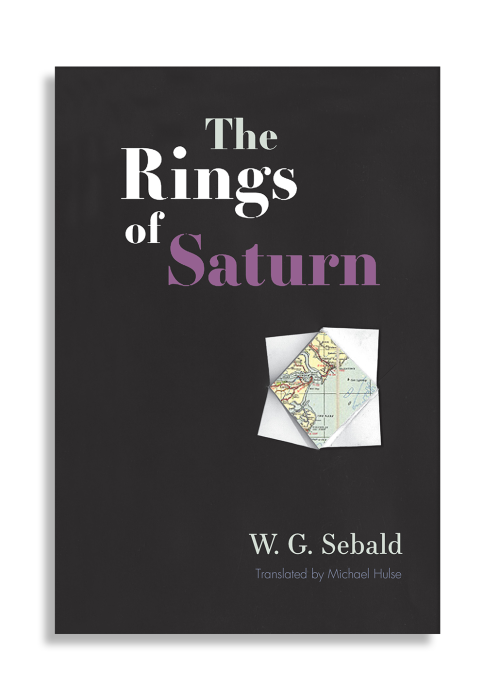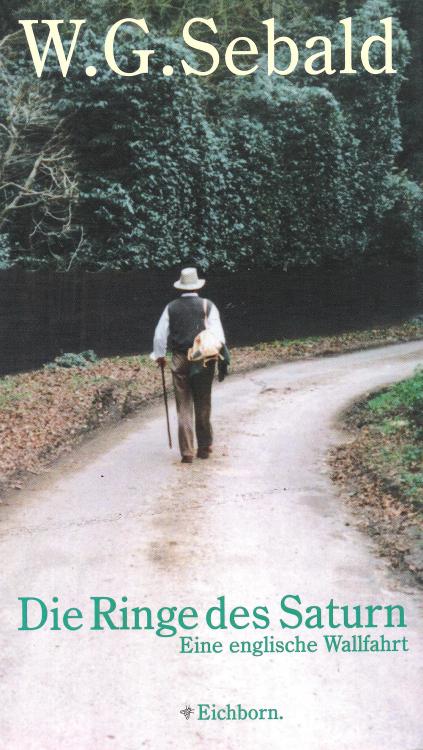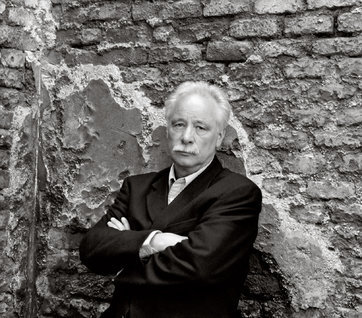#wg sebald
“It is thanks to my evening reading alone that I am still more or less sane.”— W.G. Sebald, Vertigo
“It is thanks to my evening reading alone that I am still more or less sane.”— W.G. Sebald, Vertigo
I read The Rings of Saturn after finishing Station Eleven.
Unlike the author of that book, Sebald does not use visual images to embed his narrative with symbolic meaning and in that sense coming to a design idea felt much murkier than the previous cover I tackled. Nevertheless I’m very satisfied with the results, and definitely think this refresh has more contemporary appeal than the old New Directions cover designs.
I’ll be posting more cover designs over the next few weeks on this blog, but you can check them out on my website, too.
Post link
(photo by Isolde Ohlbaum)
Not sure how I missed this, but back in May, Joshua Cohen had a fantastic little review of the posthumous collection of W.G. Sebald’s early literary criticism, A Place in the Country, in the Times. Aside from being whip smart, Cohen’s piece mentions a few features about Sebald’s “novels” that I hadn’t realized:
All four of his novels bear the marks of these influences, in images and even lines lifted verbatim: parts of Stifter’s story “Der Condor” appear in “The Rings of Saturn,” and of Walser’s short story “Kleist in Thun” in “Vertigo,” unacknowledged. But then Sebald also borrowed from the living, especially from the biographies of émigrés: the poet and translator Michael Hamburger has a cameo in “The Rings of Saturn.”
None of this was plagiarism, or even allusion. This was Sebald proposing a self whose only homeland was the page: Existence beyond the bindings was too compromising. This principle corresponds to the photographs Sebald included in his novels, black-and-white portraits he’d purchased from antique markets; in “Austerlitz,” that boy in the cape holding the plumed tricorn is not Jacques Austerlitz — it can’t be: Jacques Austerlitz is fictional — and yet it is more Jacques Austerlitz than the boy it actually depicts, who remains unknown to the reader (and who remained unknown even to Sebald, who, according to James Wood, paid 30 pence for the photo).
The page is the new horizon at the same time that it’s the old one. All words and works, bound together and repeated and rephrased and reused–mine and yours and Walser’s and Sebald’s and Cohen’s–forever and ever. Of course, Sebald and Cohen say it better than any of us can.
-Hal-
“I do tell people in private conversations that there are other ways of making ends meet, and that writing often doesn’t work when you try to force it. People usually understand that. I also make sure to tell everybody that it is extremely important to have a profession besides writing, no matter what job it is. There are certain professions that are more suitable than others, as a parallel to this kind of work. Being a doctor, for example, won’t hurt. Whereas being a dentist is not so good. You know, as a dentist you always look into the same mouths and see the same holes. You never hear anything from the patients, because they sit there like this [pulls his mouth wide open and continues sentence in mock constrained voice], and they cannot say anything. Whereas as a physician you receive valuable insight into social contexts, family stories, personal problems, that is a lot of material. Well, and the best thing probably is to be a notary. Hereditary matters. Nowhere can you see as clearly how human beings work than where money is concerned. But on the whole it doesn’t really matter what you are, be it an insurance agent or a teacher or whatever – you just have to have something that will free you from the burden of having to write something every day.”
-W.G. Sebald, in an interview



